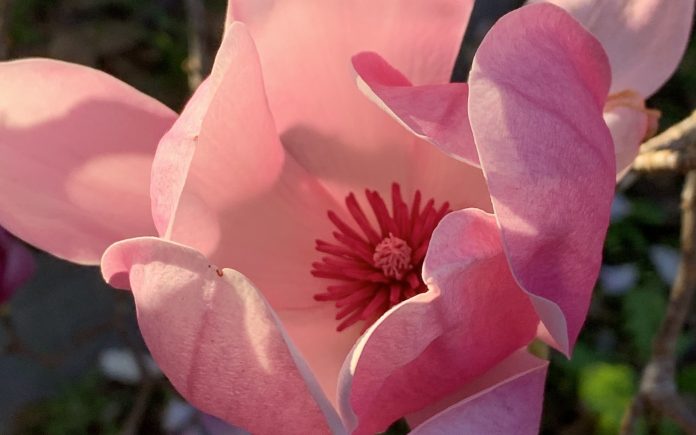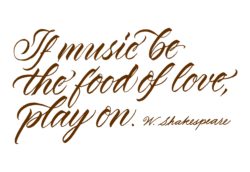We are familiar with the acronym ABC when it comes to CPR, but what is the ABC of Self-care? CPR is a dramatic event that is required when we have reached a terminal point in life, often because of the way we have been living it. What if we were to not just wait until life becomes a terminal illness to have to remember ABC, and start to apply ABC to remind us to care for ourselves on a daily basis, so that we may live longer, healthier and happier lives?
The ABC we are familiar with stands for: Airway, Breathing, Circulation, the order in which we need to take care of people when they are in need of resuscitation.
So what is the ABC of self-care?
A
-
Awareness that we have a self that needs caring for
As doctors (and as people) we are trained from a young age to put the needs of others first, and that it is selfish to care for oneself. But this is not true. Caring for others at our own expense leads to exhaustion, depression and ultimately burnout, where we cannot care at all, including for ourselves, which can lead to the most care-less act of all, suicide; something doctors are all too familiar with.
When we care deeply for ourselves, first and foremost, we are able to care for others from a fullness, not an emptiness, and the quality of this care is far greater than what we can deliver from duty, obligation, or fulfilling a need to be recognised or accepted or appreciated by others. Caring for others in a way that comes from a deep care of ourselves first, sustains us through our days.
-
Acceptance that not everything we have been taught is true
In medicine, we are taught things that are not always true. But we are also taught not to question what we are taught, so we tend to swallow the prevailing dogma hook, line and sinker and find it very difficult to change our views once they have become established.
Caring for ourselves is not part of our medical training and until we question the truth of this, not much is going to change. There are many wonderful parts of modern medicine, but as a whole it is not working. Despite the great advances we have made, and the vast amounts of time, money and effort we expend, we are becoming personally and collectively overwhelmed by the increasing rates and complexity of illness and disease. Our profession has higher rates of physical and mental ill health, depression, drug and alcohol addiction and suicide than the general population, and they are not doing too well either. Something has to change … why not start with us?
-
Alignment to what is true
We are not merely physical, we are also energetic beings, and life is not purely material and personal, but there are energetic and universal dimensions to it. We can align ourselves to the purely personal and material, and make life all about us (me, myself and I), or we can align to the universal, and make life all about the All. Which starts with us, for we can only care for others as deeply as we care for ourselves.
Caring for ourselves brings a greater depth to our understanding and appreciation of who we are, which is a universal being worthy of deep love and care, and it brings a knowing that others are in essence the same as us, so we then bring that same understanding and appreciation to all others, equally so.
-
Appreciation
As doctors, we are so trained to be critical of ourselves and each other, that it does not leave much room for appreciation. It is so important to appreciate ourselves. By and large, we do so much for people, and most of what we do is great, and it can be very supportive to take a moment to appreciate that, so that we put some appreciation in the bank to sustain us for the inevitable times when things don’t go so well.
But even more important than appreciating ourselves for what we do, is to learn to appreciate ourselves for who we are. From young, we are trained to focus on what we do, and learn to gain recognition, acceptance and appreciation for all our doing, from the moment we learn to smile, talk, and walk, all the way through to medical school and beyond.
We tend to forget that we are not just a doing machine, we are first and foremost a beautiful being. Taking a moment to stop and appreciate our beingness, the quality of who we are, reminds us that we are worthy of love and care, no matter what we do or don’t do. And the quality of being that we bring to all that doing can inform it and imbue the doing with deep love and care.
B
-
Body awareness
For people who have made it their life’s work to study the body, work with the body, fix, cure and heal the body, we surely have neglected our own. We act as if the sole job of the body is to carry around our brain, and we think that our head is where our intelligence resides.
We ignore the body until we no longer can, we override its signals until they stop us in our tracks, and then we act surprised when our body breaks down or malfunctions in some way.
Bringing our awareness back to the body and the signals it is constantly communicating to us, is a great way to start to self-care. Listening and responding accordingly, so that we eat when we are hungry, drink when we are thirsty, go to the bathroom when we need to, exercise to keep our body fit for purpose, and rest when we are tired, are great first steps to caring for the body, steps that we can constantly refine as our self-care deepens.
-
Body intelligence
Our whole body is intelligent. This is a concept that we intelligent doctors struggle to accept. But it is true. Our body knows. It does not just think it knows; it knows. Not just what is going on within us, but what is going on with others and all around us.
Learning to honour the intelligence of the body, of what we feel and know, and being guided by it, will lead us to living with more awareness and understanding, and to a more true and lasting way to live.
-
Breath
Learning to breathe our own breath is a great way to start becoming more aware of the body and what it is communicating to us.
No-one teaches us how to breathe and when we are stressed or struggling we tend to hold our breath, or breathe in a fast and shallow way which fuels our anxiety, our restlessness and our dis-ease. Learning to breathe slowly, gently and deeply helps to settle us, and opens us up again to our awareness of our own body and being, and to life and people, and to the world around us.
C
-
Core
Core strength is known to be important to physical fitness, but what is the core of us?
Our core, or centre, is our heart. We are heart-centred beings. The centre of our being is love. We are love, we come from love, and the purpose of our being is to love. All any of us truly want is to be loved, and to be able to love, fully and freely, in return.
Separating from, holding back from expressing, and holding out from receiving the magnificent love we are, we all are, and we all come from, is the root cause of all of our dis-ease, our restlessness, our unsettlement, which can then go on to create physical, mental and emotional disease.
We are not just physical bodies, we are energetic beings. This is the core of self-care, for who is the self we are caring for? Are we just caring for a physical body that lives in isolation from other bodies, or are we caring for a body of love, with all the deep love and care that we innately are, understanding that we are ultimately part of the universal whole?
-
Connection
We can live life in isolation, or we can live in connection with others. Isolation is known to increase the rates of illness, disease and death, and loneliness is one of the worst diseases of modern times; in a world that has 8 billion people in it, many of us feel we have no-one who cares for us.
Living life in connection, knowing we are connected with the essence of ourselves, others and the world around us, brings purpose, meaning and joy to life and that joy can be infectious, spreading to those around us.
-
Care is ever-deepening
As we start to care for ourselves, firstly in basic ways of eating, drinking, moving and sleeping, our bodies become more vital and alive and our awareness increases. We may start to feel more and more that we are super-sensitive beings and start to adjust what we eat and drink, how we express, and how we move accordingly, constantly refining what it means to care for ourselves.
And as we continue to deepen, we may start to care for ourselves not only on a purely physical level, but as energetic beings too, understanding that we are love, we come from love, and we are part of an interconnected whole, and that the way we are with ourselves has a ripple effect on all those around us.
We can live in a way that inspires others to also care for themselves – partners, parents, children, colleagues, staff, patients and people we meet in our everyday lives – and we may come to realise that the way we live matters immensely, and in fact that the way we are with ourselves and others is just as important as what we do. For true medicine is the way we live.
In this way self-care, which may seem so simple and basic to begin with, can restore us to the truth of our living way, and our vital place in the whole, as doctors, as people, and as universal beings.










I was at a workshop this week where I was sharing something about deepening my self-care as something I could return to with an issue that was out of my control. The person I was sharing that with stopped and said “what do you you mean…deepen your self-care?” This stopped me and helped me realise that deepening how we care for ourselves is not discussed and not necessarily seen as an option. Self-care is often capped at the things we do. But if we take the cap off and ask ourselves is there more, then we allow ourselves the option to go deeper into self-care.
I love this article as it highlights and shows us exactly that….what how and why we self-care and how we can take it deeper…..thank you
Thank you Jen and yes, I agree… self-care is an ever-deepening state of being and if we cap it at the level of doing, it becomes a tick-box exercise that is functional only, and not deeply caring for the being as well as the body.
I love the simplicity & realness of this article. It feels very wholistic in its approach & makes alot of practical sense.
Inspiring & easy to apply.